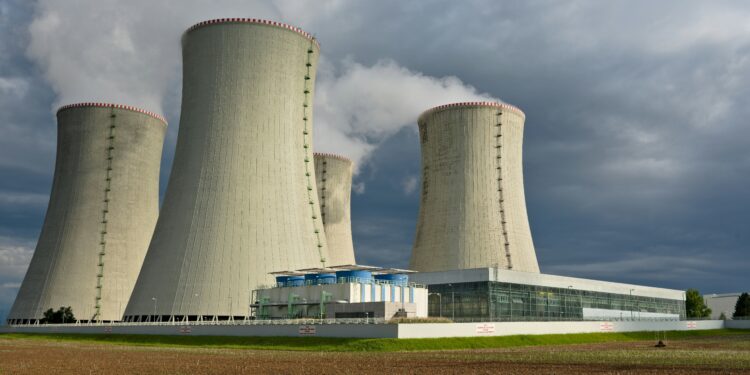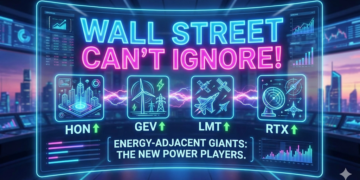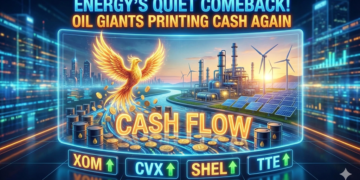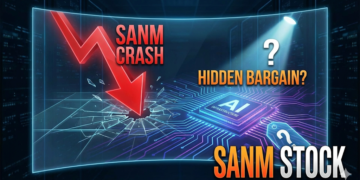NuScale Power Corporation (NYSE:SMR) is an energy technology company pioneering the development of small modular nuclear reactors, widely known as SMRs. Headquartered in Portland, Oregon, the company was founded in 2007 with the vision of revolutionizing nuclear energy by creating safer, smaller, and more cost-efficient alternatives to traditional large-scale reactors. Its mission is to provide clean, reliable, and carbon-free energy solutions that address global challenges such as climate change, rising electricity demand, and the need for energy security. Over the years, NuScale has become the first and only SMR company to receive design approval from the U.S. Nuclear Regulatory Commission, a milestone that underscores its leadership position in the field.
NuScale’s flagship product is its VOYGR power plant, a scalable energy system that can be configured to meet the needs of utilities, governments, and industrial clients. Each VOYGR module is designed to generate approximately 77 megawatts of electricity, with plants capable of deploying up to 12 modules for a combined output of over 900 megawatts. This modularity allows NuScale to tailor solutions for customers ranging from small communities to large metropolitan regions and from data centers to energy-intensive industries. By offering flexible deployment options, NuScale aims to lower costs, improve safety margins, and reduce the time required for construction compared to conventional nuclear facilities.
The company has positioned itself at the forefront of the global energy transition by targeting markets in North America, Europe, Asia, and the Middle East. NuScale’s technology has attracted significant attention from both private investors and government agencies, particularly because of its potential role in delivering reliable baseload power while complementing intermittent renewable sources such as wind and solar. The company’s partnerships with utilities and governments highlight its role as a strategic player in the push for net-zero emissions. With increasing electricity demand from emerging technologies like artificial intelligence and data centers, NuScale is promoting its SMRs as solutions that can deliver sustainable power while minimizing land use and carbon footprint.
Financially, NuScale has benefited from substantial government funding and strategic investments, including support from the U.S. Department of Energy and partnerships with international players. However, the path to commercialization has not been without obstacles, as the company continues to navigate regulatory hurdles, cost pressures, and the need to demonstrate large-scale deployment. Despite these challenges, NuScale maintains strong liquidity and capital-raising capabilities, positioning itself to fund operations and continue advancing its technology.
NuScale’s narrative is anchored in its belief that nuclear energy is indispensable for achieving decarbonization goals. By focusing on modular technology that emphasizes safety, scalability, and efficiency, the company aims to redefine how nuclear power is integrated into global energy grids. With its innovative VOYGR plants, government backing, and growing recognition as a pioneer in SMR technology, NuScale Power Corporation stands as one of the most closely watched companies in the clean energy sector.
NuScale Power’s Stock Momentum Masks Deeper Structural Challenges
NuScale Power Corporation (NYSE: SMR) has captured headlines with a sharp 14% rally, driven by analyst upgrades, investor enthusiasm for nuclear energy, and its potential role in powering data centers and AI infrastructure. Despite this surge, the company’s fundamentals reveal cracks that could undermine its long-term outlook. While supportive policy environments and technological optimism continue to provide short-term momentum, NuScale still faces substantial commercial, financial, and operational hurdles that call its valuation into question.

NuScale (SMR) Surges 14% as Analysts Lift Price Target to $44
Analyst Price Target Upgrades Create Optimism, But Risks Remain
Investor sentiment toward NuScale has been boosted by analyst upgrades, with Canaccord raising its price target to $44 from $36 and UBS lifting its estimate to $38 from $34. Both cite anticipated module deployments, favorable nuclear policy support, and rising demand from energy-hungry data centers. Yet, such optimism rests more on future potential than present execution. Price target upgrades can often fuel speculative trading, but they do not guarantee that NuScale’s projects will materialize profitably. For a company with no fully commercialized reactor yet in operation, such valuation optimism may be premature.
Revenue Growth Falls Short of Expectations
NuScale’s Q2 revenue surged from $1 million a year earlier to $8.1 million, a headline number that initially seemed impressive. However, the company still missed analyst expectations, which had projected $11.7 million in revenue. The post-earnings response from the market was telling: despite growth, shares dropped 3% in after-hours trading. This disappointment underscores the gap between investor hopes and NuScale’s actual ability to deliver. Revenue growth is a positive signal, but until it consistently meets or exceeds forecasts, the market will question whether NuScale can scale at the pace required to justify lofty valuations.
Weak Profitability Metrics Highlight Operational Inefficiency
The company’s balance sheet appears stable, with $489.9 million in cash and investments and a total capitalization around $692.87 million. Borrowing levels remain modest, which offers some comfort to investors. However, profitability metrics paint a different picture. NuScale reported a Return on Assets of -13.53% and a Return on Equity of -20.15%, both highlighting deep inefficiencies in turning resources into profits. These negative returns are not one-off anomalies—they reflect structural issues that may persist as NuScale struggles to commercialize its reactors at scale. Without material improvements in operational efficiency, NuScale risks burning through cash reserves without delivering sustainable returns.
Capital Raise Plans Signal Dilution Concerns
NuScale’s filing for potential capital raises through an automatic mixed securities shelf indicates that management may need to tap markets to fund expansion and module deployment. While this provides financial flexibility, it also introduces the likelihood of shareholder dilution. Raising capital before establishing a strong, profitable revenue base raises concerns about whether current shareholders will see long-term value creation or simply more issuance to cover ongoing costs. For investors, this is a red flag suggesting that the company’s financial independence remains out of reach.
Regulatory and Execution Headwinds Persist
Despite optimism about supportive nuclear policies, NuScale still faces significant regulatory challenges. Nuclear energy projects in the U.S. and Europe often encounter lengthy approval processes, community resistance, and political scrutiny. Additionally, NuScale has previously faced setbacks, including the cancellation of the Idaho Carbon Free Power Project, which was expected to showcase its technology. Without proven large-scale deployment, promises of future growth remain speculative. Execution risk remains the company’s biggest obstacle, and each delay undermines investor confidence.
Demand From Data Centers May Not Offset Structural Risks
Analysts have highlighted the rising demand from data centers as a potential growth catalyst for NuScale, given AI infrastructure’s massive energy requirements. While this theme is attractive on paper, it is not guaranteed that data centers will adopt nuclear as a preferred power source, particularly when renewable options such as solar and wind are becoming cheaper and faster to deploy. Even if interest materializes, regulatory, safety, and waste-disposal concerns tied to nuclear energy could delay or limit adoption. Betting heavily on this narrative may expose investors to disappointment if alternatives prove more cost-effective.
Leveraged ETFs and Speculative Hype Drive Volatility
The introduction of leveraged ETFs targeting companies like NuScale has provided traders with new ways to speculate on the stock’s movements. While this boosts liquidity and attracts short-term attention, it also amplifies volatility. Such financial instruments often exaggerate price swings, pushing valuations away from fundamentals. For long-term investors, this means NuScale’s stock may remain prone to sharp corrections whenever momentum wanes or broader market sentiment shifts against nuclear power stocks.
Momentum vs. Fundamentals: The Growing Disconnect
NuScale’s recent stock momentum highlights the growing gap between perception and reality. The company enjoys strong analyst endorsements and macro-level policy tailwinds, but its fundamentals remain weak. Operational inefficiencies, missed revenue targets, negative profitability metrics, and reliance on future capital raises all point to vulnerabilities. The bullish narrative assumes flawless execution of complex projects in highly regulated environments, but history suggests that delays, cost overruns, and setbacks are far more likely.
Conclusion: A High-Risk Bet Disguised as a Growth Story
NuScale Power Corporation presents itself as a next-generation solution for clean and reliable energy. However, the bearish case rests on tangible risks: missed revenue expectations, negative returns on equity and assets, reliance on future capital raises, regulatory bottlenecks, and dependence on speculative demand from data centers. While recent analyst upgrades and policy support create short-term enthusiasm, the company has yet to prove that its technology can deliver at scale, on time, and profitably.
For investors, NuScale remains a speculative, high-risk play. Its stock momentum may continue to attract traders in the short term, but until the company demonstrates consistent financial performance and overcomes regulatory hurdles, long-term caution is warranted.
READ ALSO: How Globalstar (GSAT)’s Strategic Apple Partnership is Changing the Satellite Game and Intel (INTC)’s Epic Comeback: Why Wall Street May Be Dead Wrong About This “Dying” Chip Giant.






